第52章 XX. THE LATE TRIAL AT COLOGNE.(2)
These papers were obtained by a double crime. A man named Reuter was bribed to break open the writing-desk of the secretary of the Society, and steal the papers therefrom. But that was nothing yet. This theft led to the discovery and conviction of the so-called Franco-German plot, in Paris, but it gave no clue as to the great Communist Association. The Paris plot, we may as well here observe, was under the direction of a few ambitious imbeciles and political chevaliers d'industrie in London, and of a formerly convicted forger, then acting as a police spy in Paris; their dupes made up, by rabid declamations and blood-thirsty rantings, for the utter insignificance of their political existence.
The Prussian police, then, had to look out for fresh discoveries. They established a regular office of secret police at the Prussian Embassy in London. A police agent, Greif by name, held his odious vocation under the title of an attache to the Embassy -- a step which should suffice to put all Prussian embassies out of the pale of international law, and which even the Austrians have not yet dared to take. Under him worked a certain Fleury, a merchant in the city of London, a man of some fortune and rather respectably connected, one of those low creatures who do the basest actions from an innate inclination to infamy. Another agent was a commercial clerk named Hirsch, who, however, had already been denounced as a spy on his arrival. He introduced himself into the society of some German Communist refugees in London, and they, in order to obtain proofs of his real character, admitted him for a short time. The proofs of his connection with the police were very soon obtained, and Herr Hirsch, from that time, absented himself.
Although, however, he thus resigned all opportunities of gaining the information he was paid to procure, he was not inactive. From his retreat in Kensington, where he never met one of the Communists in question, he manufactured every week pretended reports of pretended sittings of a pretended Central Committee of that very conspiracy which the Prussian police could not get hold of.
The contents of these reports were of the most absurd nature; not a Christian name was correct, not a name correctly spelt, not a single individual made to speak as he would be likely to speak. His master, Fleury, assisted him in this forgery, and it is not yet proved that "Attache" Greif can wash his hands of these infamous proceedings. The Prussian Government, incredible to say, took these silly fabrications for gospel truth, and you may imagine what a confusion such depositions created in the evidence brought before the jury. When the trial came on, Herr Stieber, the already mentioned police officer, got into the witness-box, swore to all these absurdities, and, with no little self-complacency, maintained that he had a secret agent in the very closest intimacy with those parties in London who were considered the prime movers in this awful conspiracy. This secret agent was very secret indeed, for he had hid his face for eight months in Kensington, for fear he might actually see one of the parties whose most secret thoughts, words and doings, he pretended to report week after week.
Messrs. Hirsch and Fleury, however, had another invention in store.